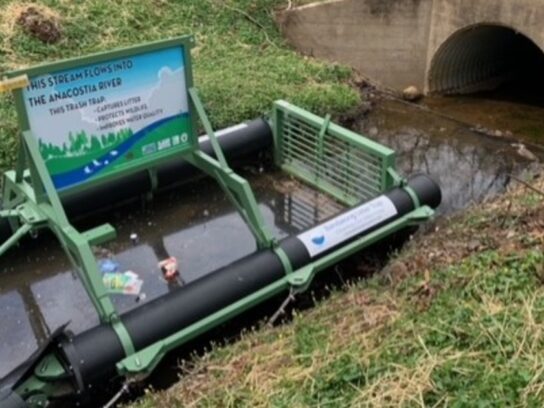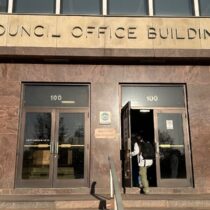
“I believe the Trump Administration is on a misguided and wrong path, and it’s harmful to the nation, and it’s also harmful to Montgomery County residents,” declared Craig McLean, former NOAA Assistant Administrator for Research.
McLean, who spoke during Montgomery County Executive Marc Elrich‘s weekly media briefing Tuesday, said federal cuts to NOAA’s workforce and climate research grants will hurt weather prediction and information vital to those in the fish industry.
Thousands of NOAA employees throughout the country were either laid off or offered buyout packages earlier this year. By April 30, people with a combined “27,000 hours of experience” were no longer employed there, said McLean. “He’s clawing back” programs that already received funding, he added.
“President Trump is reversing this program and deliberately harming the safety of all Americans,” Elrich said. “We are crippling our ability to protect people and the environment,” which he said is leading to bad climate, health and industry policies.
In an effort to combat federal cutbacks, the county is offering $900,000 in clean water grants to nonprofits and community organizations.
Applications are being accepted for grants ranging from $45,000 to $100,000 to improve water quality locally.
The Montgomery County Department of Environmental Protection, in partnership with the Chesapeake Bay Trust, is providing the funds to local watershed groups, homeowner and community associations, faith-based organizations, and service and civic groups.
The projects cannot be located in Rockville, Gaithersburg and Takoma Park, as these jurisdictions manage their own stormwater systems.
This is the 11th year these grants have been offered. Last year, a total of $750,000 was awarded.
Applications are due by November 13 at 4 p.m. To learn more, register for the pre-application workshop. To review the request for proposals, click here.
“Protecting our streams and waterways takes partnerships. These organizations are on the frontlines of conservation, yet many environmental nonprofits are facing increased challenges because the Trump Administration has turned its back on providing resources needed for a cleaner environment. That makes our local investments even more important,” Elrich said.
“By working together at the community level, we can keep moving forward on clean water and environmental protection, even when the federal government refuses to lead,” he added.
Some of the programs that are eligible include public outreach, replacement of permeable pavement, water quality monitoring and litter reduction.


Comments are closed.